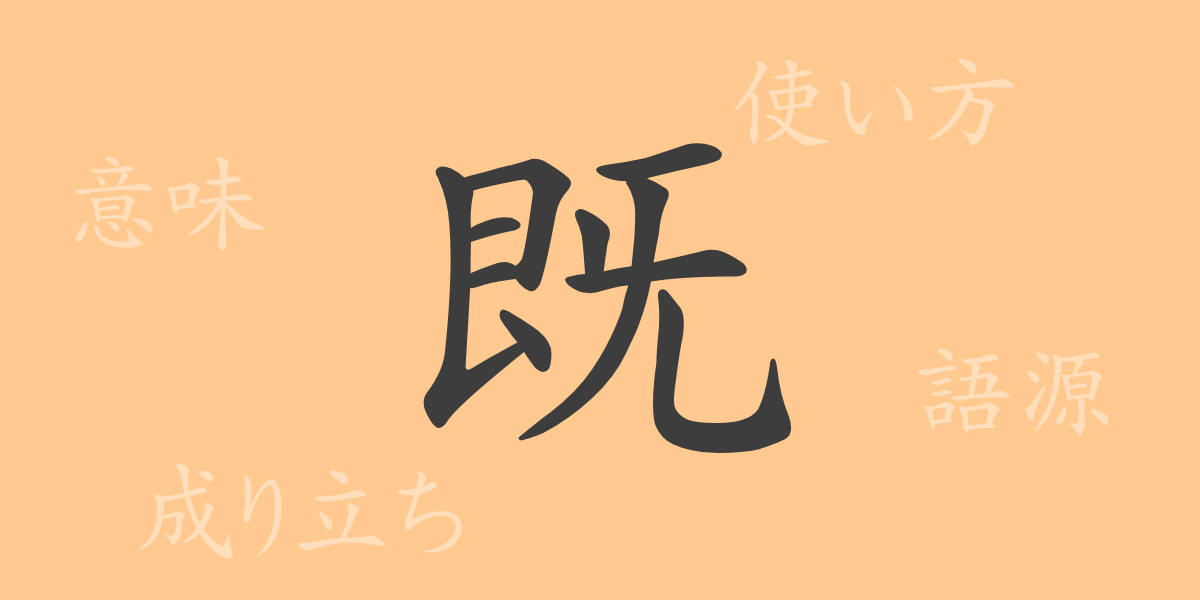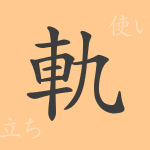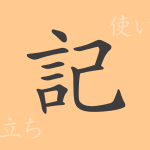In our daily lives, we often come across kanji characters without giving them much thought. One such character is “既” (き (ki)). However, we seldom ponder the origins, meanings, or usage of these characters in depth. In this article, we will spotlight the commonly used kanji “既” in Japan and delve into its allure.
The Origins (Etymology) of 既
The kanji “既” (き (ki)) evolved from a pictograph in ancient China, which depicted the act of removing the cloth that covered an altar after a festival. This act signified the completion of the ritual, from which the meaning “already” was derived. Over time, while the character’s use has broadened to various contexts, its fundamental meaning remains unchanged.
The Meaning and Usage of 既
“既” (き (ki)) carries the meaning of “already” or “previously.” It is used to indicate that something has been completed or has reached a certain state. It can also be used when discussing a situation on the premise that a certain state of affairs has already been established.
How to Read 既, Stroke Count, and Radical
In Japanese, there are multiple ways to read the kanji “既” (き (ki)).
- Reading: The onyomi (Chinese reading) is “キ” (き (ki)), and the kunyomi (Japanese reading) is “すで(に)” (sude(ni)).
- Stroke Count: The stroke count for “既” is 10.
- Radical: The radical of this kanji is “无” (む (mu)), but it is also used as a component in the form of “旡” (き (ki)).
Idioms, Phrases, and Proverbs Using 既 and Their Meanings
There are numerous idioms, phrases, and proverbs that include “既” (き (ki)), each illustrating the richness of expression in the Japanese language.
- 既成概念 (きせいがいねん (kisei gainen)): Refers to pre-existing concepts or notions, indicating a state that is resistant to new ideas.
- 既成事実 (きせいじじつ (kisei jijitsu)): Means a fact that has already been established, pointing to a situation that is difficult to change.
- 既視感 (きしかん (kishikan)): The feeling that one has seen something before, also known as déjà vu.
- “既に破れかぶれ” (すでにやぶれかぶれ (sudeni yaburekabure)): A proverb meaning that things have already taken a turn for the worse, and one has no choice but to take drastic action.
Summary on 既
The meanings embedded in a single kanji character breathe deep cultural significance through its shape and history. “既” (き (ki)) is no exception, playing a vital role in the Japanese language. Through this exploration, we hope you have gained an appreciation for the depth of meaning behind “既” and the richness of expressions that use it. May this article serve as a helpful guide to a new understanding when you encounter “既” in your daily communication.

























